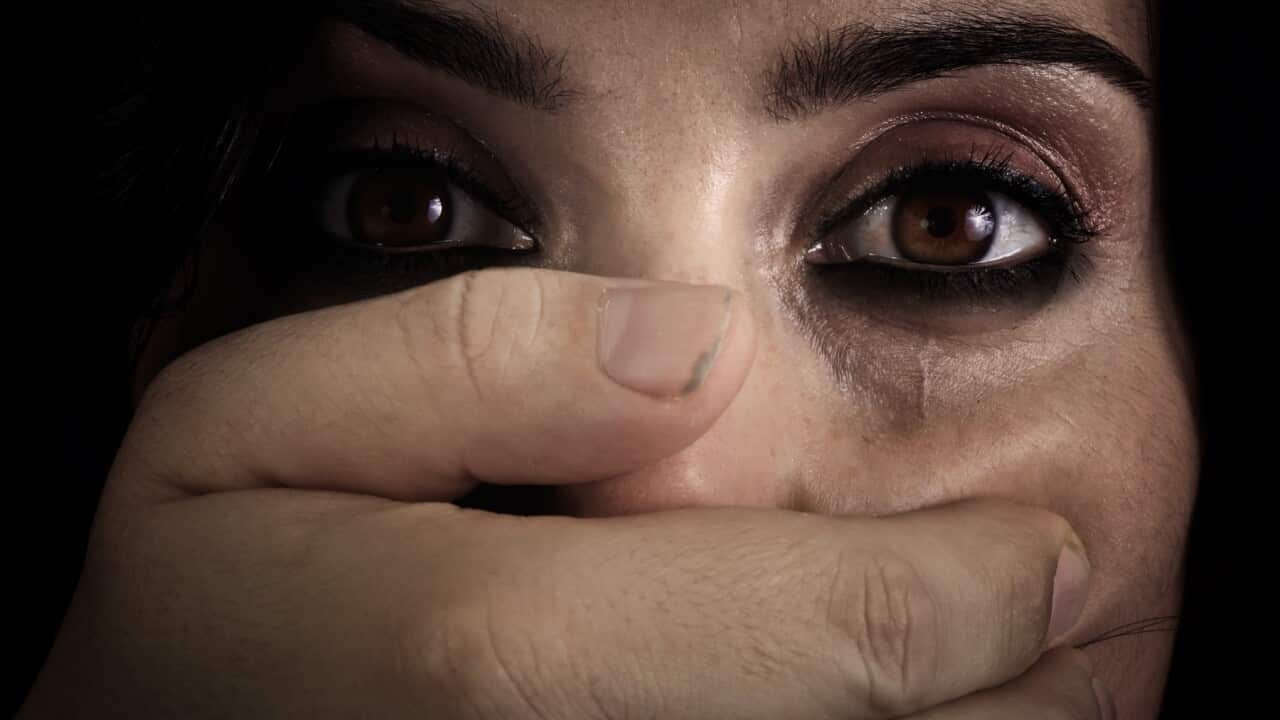English
The Vikings.
A seafaring people who from the late 8th century to the late 11th century raided, pirated, traded, and settled across much of Europe.
They also voyaged as far afield as the Mediterranean, North Africa, Greenland, and what is now Newfoundland in Canada.
They were a force to be reckoned with and had a profound impact on early medieval history in Europe.
But while many associate the Viking Age with all-conquering male warriors, curators of an exhibition say it was the Völva who possessed incredible power.
Little is known about the Völva - which means “staff bearer” in Old Norse - but historians believe she was a kind of fortune-telling female shaman in Old Norse culture.
Peter Pentz is the curator at the National Museum of Denmark.
“The roots of the Viking Völva probably goes centuries back. Even the Romans explained that the Germanic tribes from the north, when their armies came down into the Mediterranean, they had a follower, a woman, an old woman who could foresee the outcome of a battle. And she will also be the one, when they took prisoners, who cut the throat of the prisoners.”
Enter the mysterious world of the Völva, a Viking sorceress so powerful she left male raiders shaking in their boots; even the king of the gods Odin sought her help.
There are numerous mentions of Viking sorceresses in old poems and sagas.
They probably had high status in Viking society, offering conjured visions of the future to whole settlements; some even informed Viking royalty.
But it was their ability to "sejd”, a form of magic that could involve an out-of-body trance, that made them truly unique.
Mette Boritz Ms is the editor of a new exhibition about the Völva at the National Museum of Denmark:
“The Völva had a very, very special role and people were very frightened of her. Even guards and strong Vikings were afraid of the Völva. And of course, you were afraid of a person that can speak with the spirits, and that can look into the future and maybe change something in that future. So, she had an extreme power in those days.”
Visitors to the exhibition explore the otherworldly “Völva’s Garden”, before coming face-to-face with Ragnarök, the “Doom of the Gods” and end of the world for both gods and men.
Few artefacts remain to cast light on the Völva’s mysterious history.
But experts believe a grave from around 980, discovered among the remains of Fyrkat ring fortress in Denmark, has all the hallmarks of a resting place for a sorceress.
Peter Pentz again.
“Viking hoards are usually bullion hoards, containing silver, silver clips, silver bars. Value, pure money value for buying, selling. But this one, this hoard contains amulets, beads, which could also be interpreted as a kind of magic stuff, amulets, each bead having its meaning, its function. And there are hundreds of beads coming from all over the world.”
As the famous Viking King Harald “Bluetooth” Gormsson spread Christianity throughout his kingdom, the Völvas slowly lost their function.
By the Middle Ages, laws were introduced to suppress pagan rituals.
Mr Pentz says it’s likely just a romantic idea that females in Viking society had many of the same rights as males.
He says Viking society was much like any other in Europe at the time - dominated by men.
But that's not the whole story:
“There were some rules in Viking society providing women with a little bit more privileged world than their sisters in the rest of Europe. For instance, their access to divorce, their access to ownership, some of them even went to war with sword in hand. So, it might be a romantic idea, but there's a little, tiny bit of truth in it.”
But there's no doubt that for hundreds of years, the Völvas had a special part to play in Viking society in rituals that began with a song to lure or attract the spirits.
Faroese singer-songwriter Eivør Pálsdóttir believes the song may have sounded like this.
The song had to be sung as beautifully as possible so the spirits would be pleased and therefore be more likely to help the Völva in her ritual.
The Völva would either sit on a highchair or she would be lifted up, so she would be able to see into another realm.
If the spirits were pleased with the song they would help the Völva in predicting the future or seeing the past.
But it could be dangerous - the people were afraid of the Völva and if her clan did not like her prophecies, she could be killed.
Today, there are still people who see themselves as Völva, sometimes to be found at markets in Scandinavia.
While the practice may have officially died out with the introduction of Christianity... it seems you can't kill an idea.
Italian
I Vichinghi.
Un popolo di navigatori che dalla fine dell'VIII alla fine dell'XI secolo compì razzie, piraterie, commerci e si insediò in gran parte dell'Europa.
Viaggiarono anche nel Mediterraneo, in Nord Africa, in Groenlandia e nell'attuale Terra Nova in Canada.
Erano una forza con cui fare i conti ed ebbero un profondo impatto sulla storia dell’Alto Medioevo in Europa.
Ma mentre molti associano l'epoca vichinga a guerrieri maschi onnipotenti, i curatori di una mostra affermano che erano le Völva a possedere un potere incredibile.
Non si sa molto della Völva - che in norreno antico significa "portatrice di bastone" - ma gli storici ritengono che fosse una sorta di sciamano-indovino femminile nella cultura norrena antica.
Peter Pentz è il curatore del Museo Nazionale di Danimarca.
“The roots of the Viking Völva probably goes centuries back. Even the Romans explained that the Germanic tribes from the north, when their armies came down into the Mediterranean, they had a follower, a woman, an old woman who could foresee the outcome of a battle. And she will also be the one, when they took prisoners, who cut the throat of the prisoners.”
Entrate nel misterioso mondo della Völva, una maga vichinga così potente da far tremare i razziatori maschi; persino il re degli dei Odino cercò il suo aiuto.
Nei poemi e nelle saghe antiche si trovano numerose menzioni di maghe vichinghe.
Probabilmente avevano uno status elevato nella società vichinga, offrendo visioni evocative del futuro a interi insediamenti; alcune informavano persino i reali vichinghi.
Ma era la loro capacità di "sejd", una forma di magia che poteva comportare una trance extracorporea, a renderle davvero uniche.
Mette Boritz è la curatrice di una nuova mostra sulle Völva al Museo Nazionale di Danimarca:
“The Völva had a very, very special role and people were very frightened of her. Even guards and strong Vikings were afraid of the Völva. And of course, you were afraid of a person that can speak with the spirits, and that can look into the future and maybe change something in that future. So, she had an extreme power in those days.”
I visitatori della mostra esplorano l'ultraterreno "Giardino di Völva", prima di trovarsi faccia a faccia con il Ragnarök, il "Destino degli Dei" e la fine del mondo sia per gli dei che per gli uomini.
Pochi manufatti sono rimasti per chiarire la misteriosa storia delle Völva.
Ma gli esperti ritengono che una tomba risalente al 980 circa, scoperta tra i resti della fortezza ad anello di Fyrkat in Danimarca, abbia tutte le caratteristiche di un luogo di riposo per una maga.
Ecco ancora Peter Pentz.
“Viking hoards are usually bullion hoards, containing silver, silver clips, silver bars. Value, pure money value for buying, selling. But this one, this hoard contains amulets, beads, which could also be interpreted as a kind of magic stuff, amulets, each bead having its meaning, its function. And there are hundreds of beads coming from all over the world.”
Quando il famoso re vichingo Aroldo Gormsson, detto Dente Azzurro diffuse il cristianesimo in tutto il suo regno, le Völva persero lentamente la loro funzione.
Nel Medioevo furono introdotte leggi per sopprimere i rituali pagani.
Pentz afferma che probabilmente è solo un'idea romantica che le donne nella società vichinga avessero molti degli stessi diritti dei maschi.
A suo avviso, la società vichinga era come tutte le altre dell'Europa dell'epoca: dominata dagli uomini.
Ma questa non è tutta la storia:
“There were some rules in Viking society providing women with a little bit more privileged world than their sisters in the rest of Europe. For instance, their access to divorce, their access to ownership, some of them even went to war with sword in hand. So, it might be a romantic idea, but there's a little, tiny bit of truth in it.”
Ma non c'è dubbio che per centinaia di anni le Völva abbiano avuto un ruolo speciale nella società vichinga, con rituali che iniziavano con una canzone per attirare gli spiriti.
La cantautrice faroense Eivør Pálsdóttir ritiene che la canzone potesse suonare così.
La canzone doveva essere cantata nel modo più bello possibile, in modo che gli spiriti fossero contenti e quindi più propensi ad aiutare la Völva nel suo rituale.
La Völva si sedeva su un seggiolone oppure veniva sollevata, in modo da poter vedere in un altro regno.
Se gli spiriti erano soddisfatti della canzone, aiutavano la Völva a predire il futuro o a vedere il passato.
Ma poteva essere pericoloso: la gente aveva paura della Völva e se il suo clan non gradiva le sue profezie, poteva essere uccisa.
Oggi ci sono ancora persone che si considerano Völva, che a volte si trovano nei mercati della Scandinavia.
Anche se la pratica potrebbe essersi ufficialmente estinta con l'introduzione del cristianesimo... sembra che non si possa uccidere un'idea.




